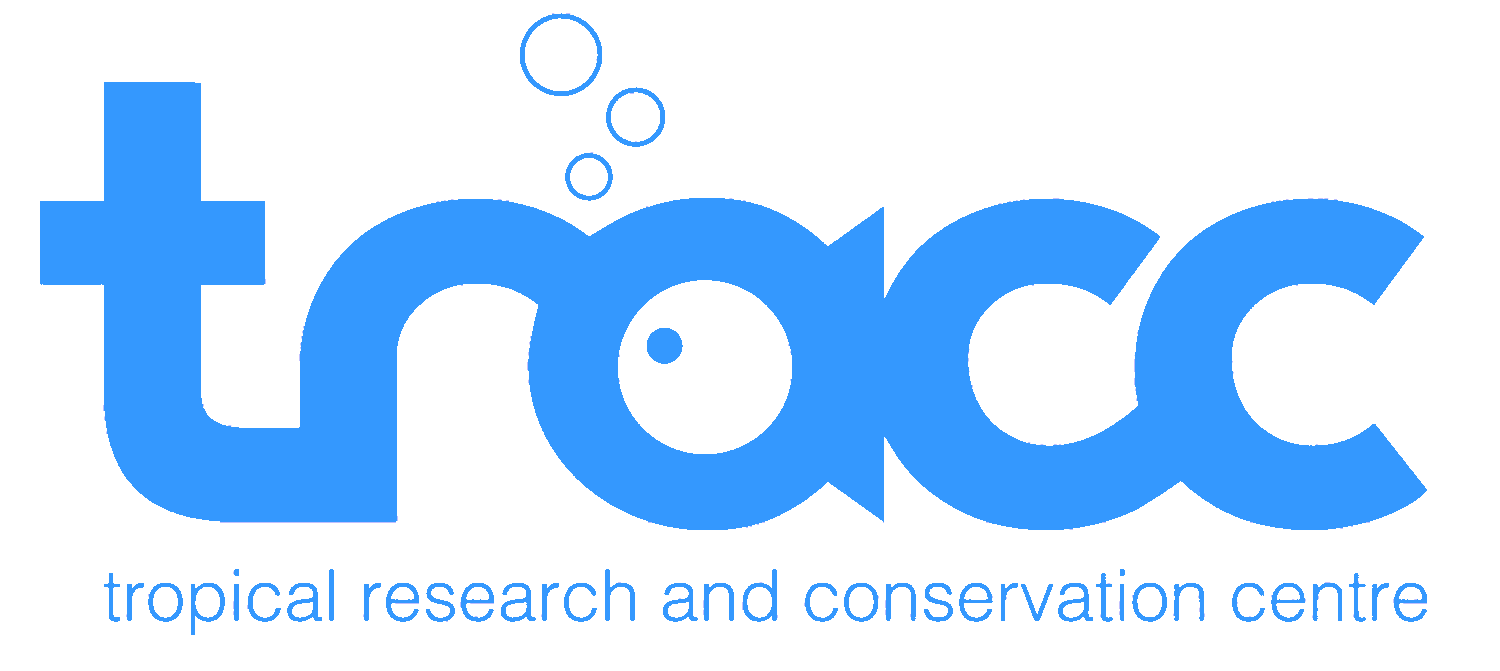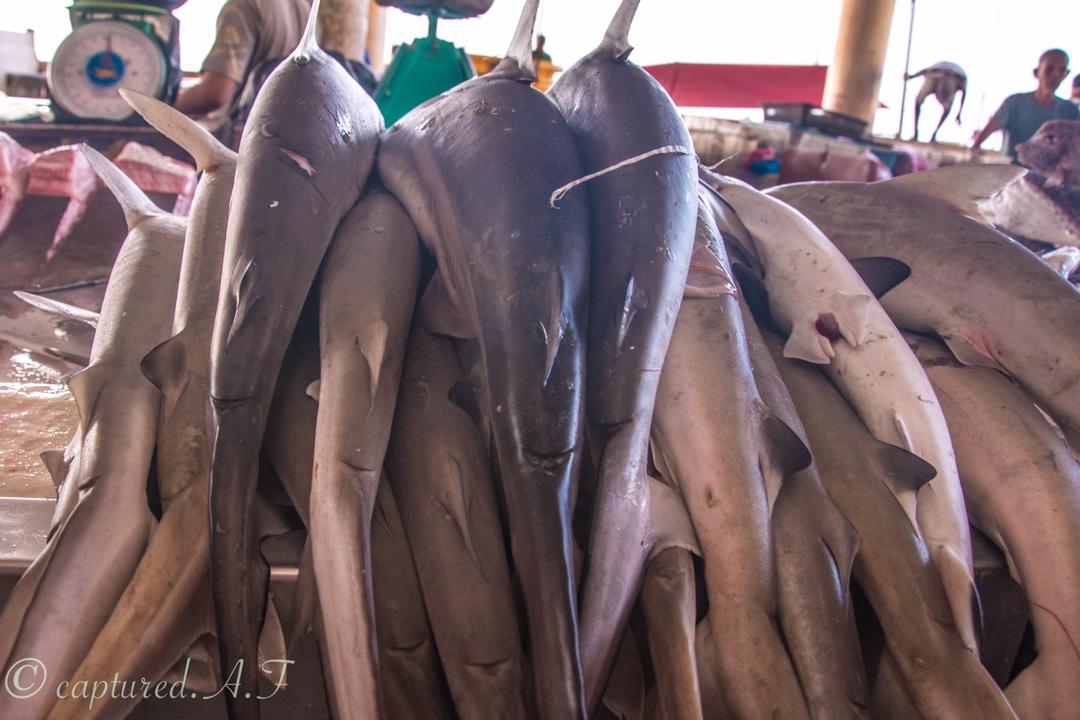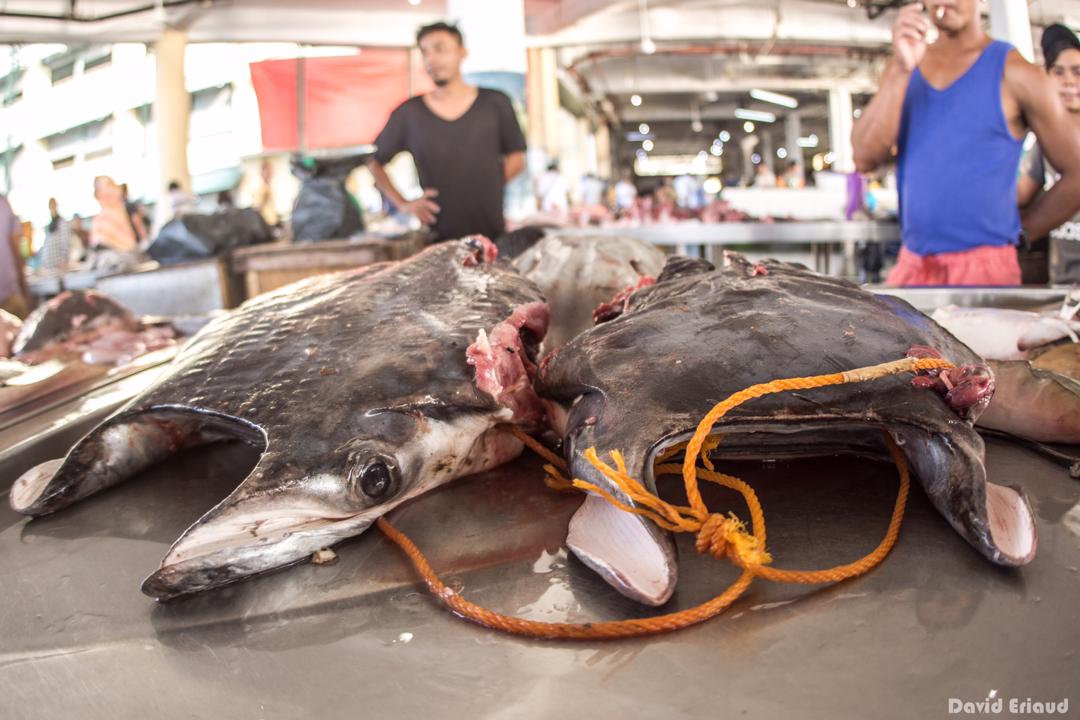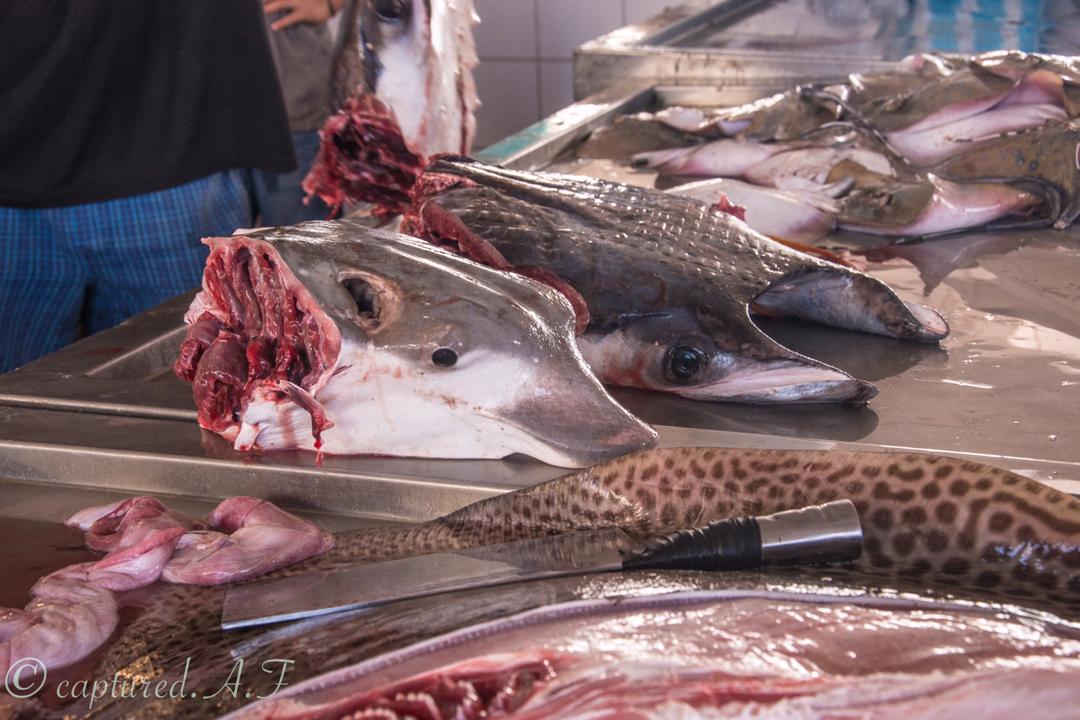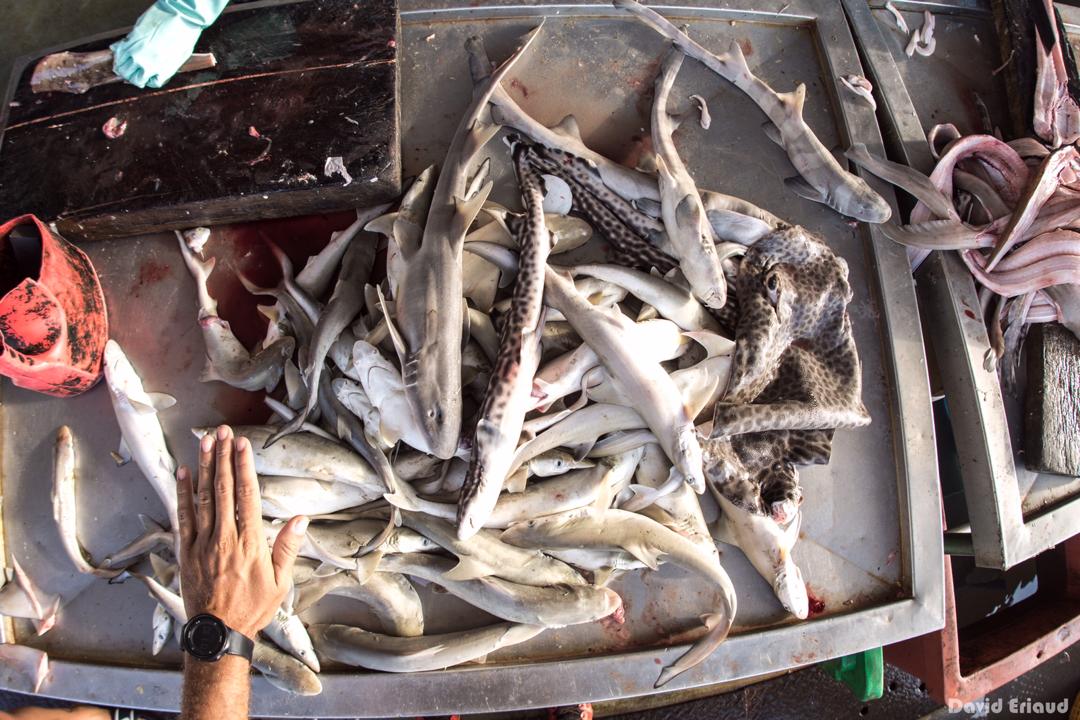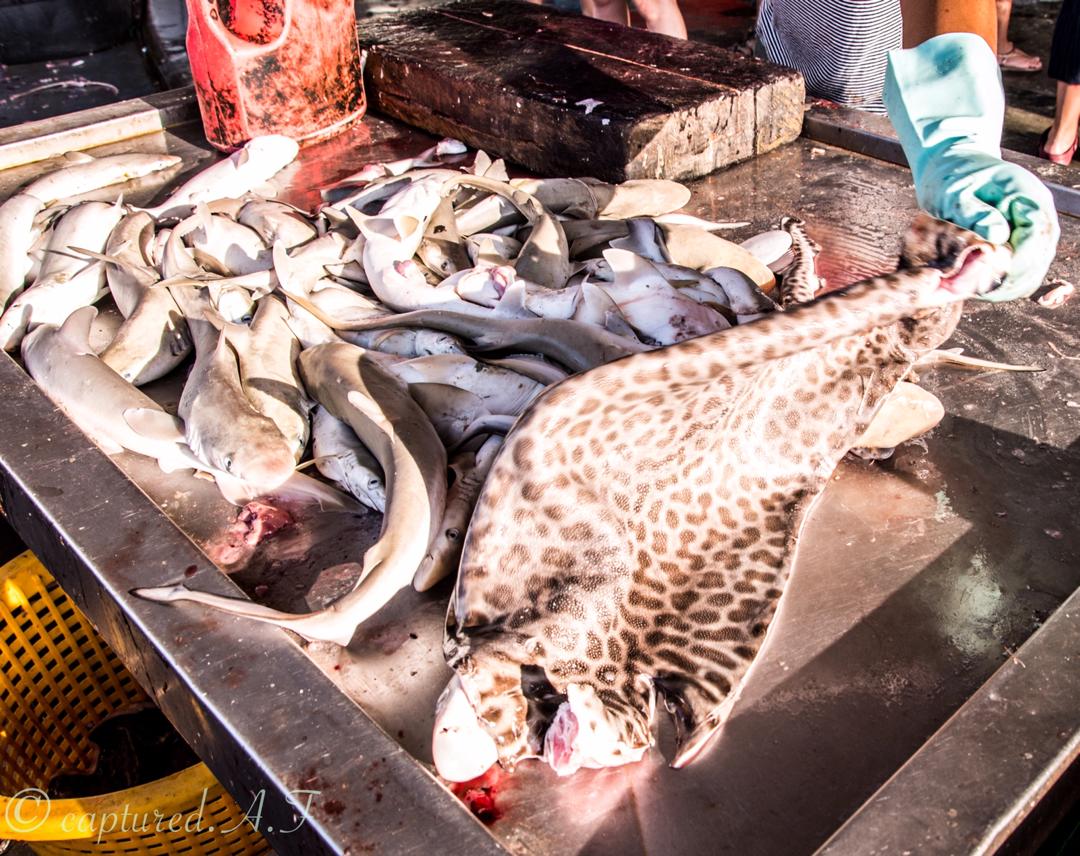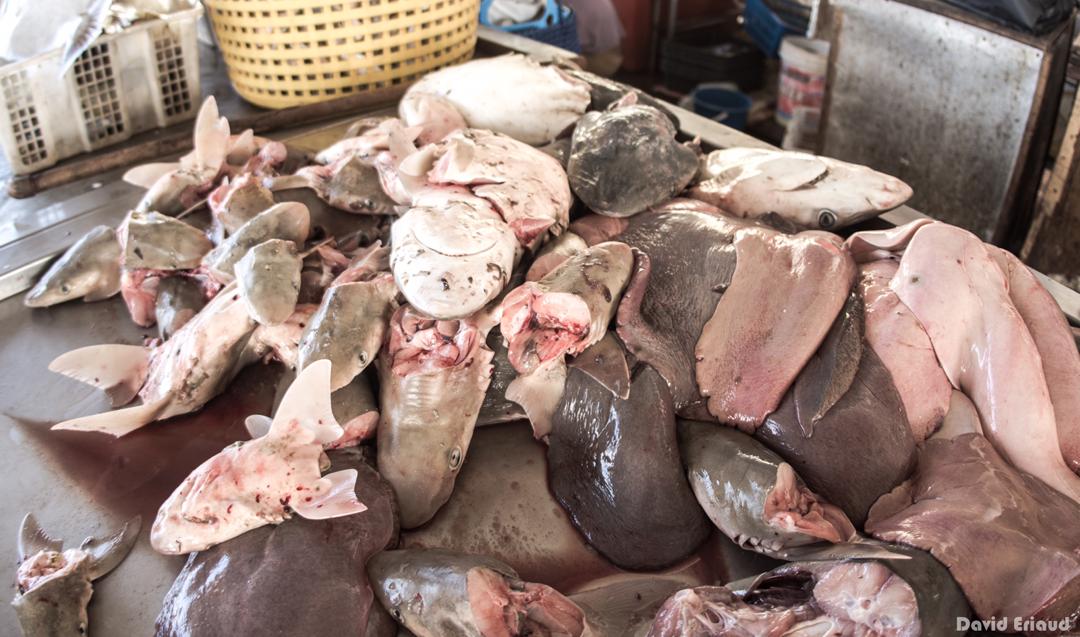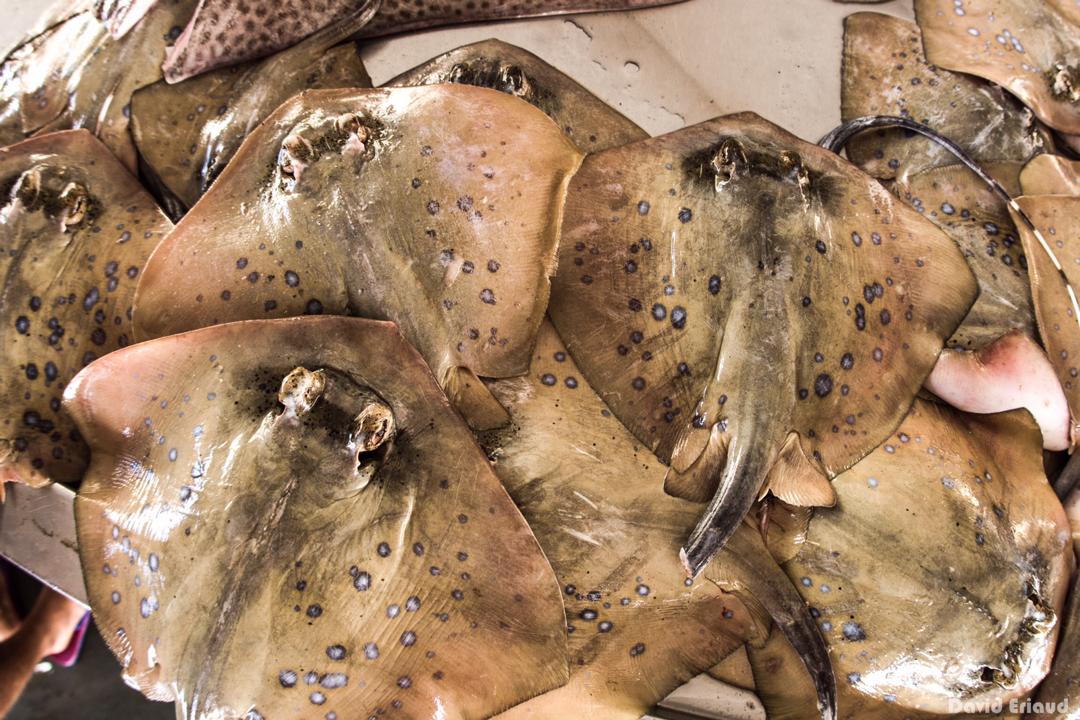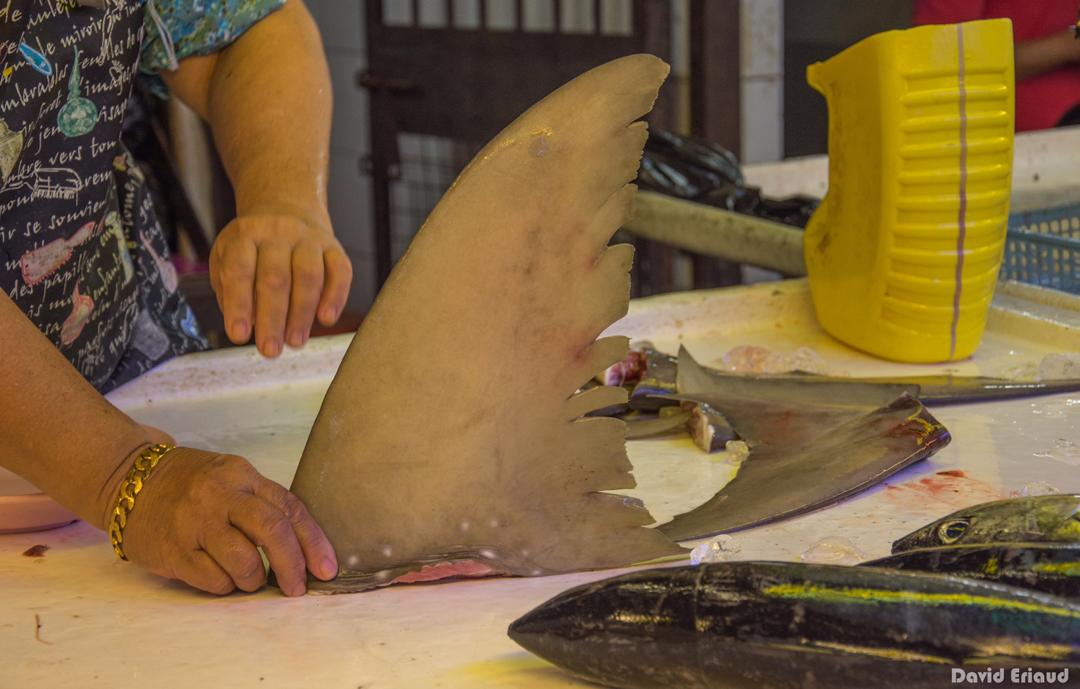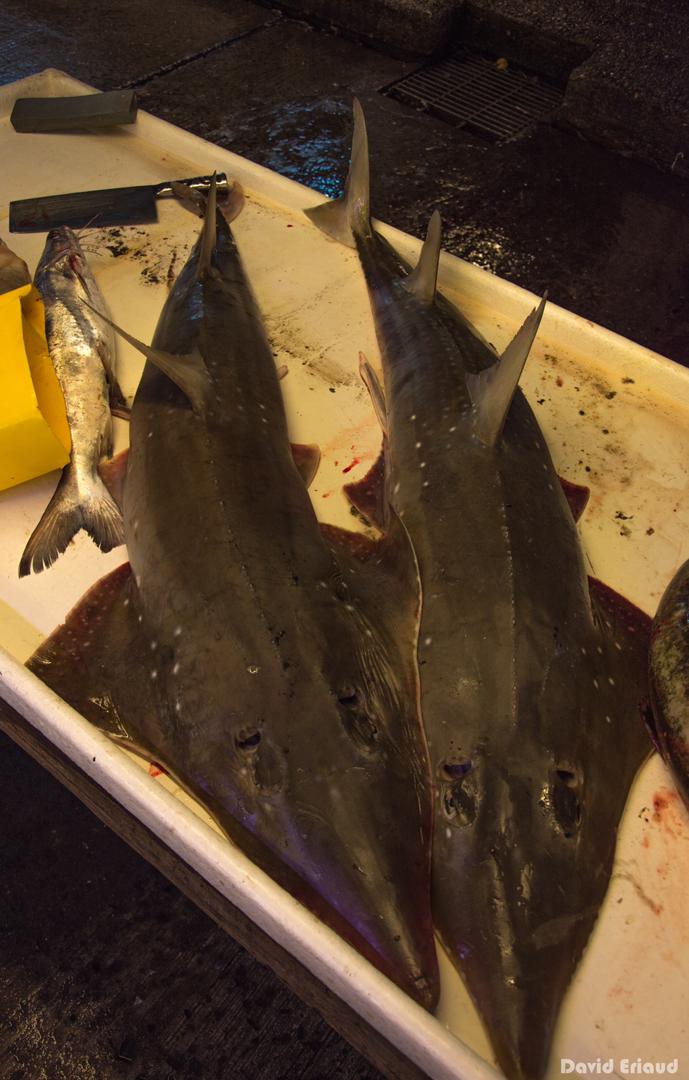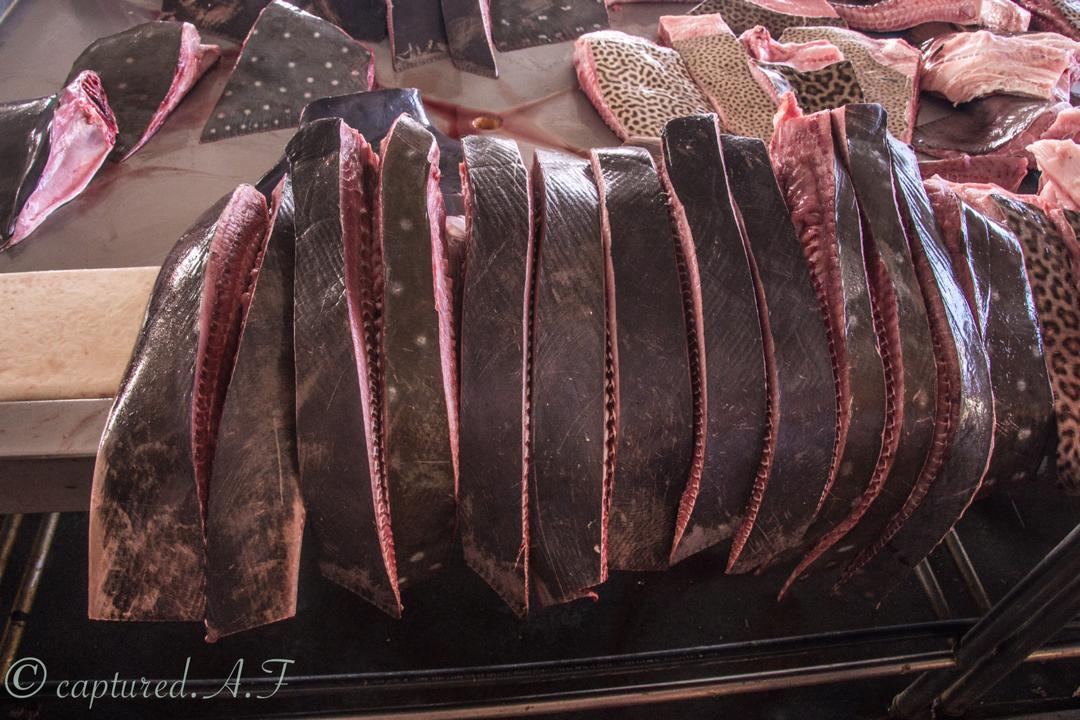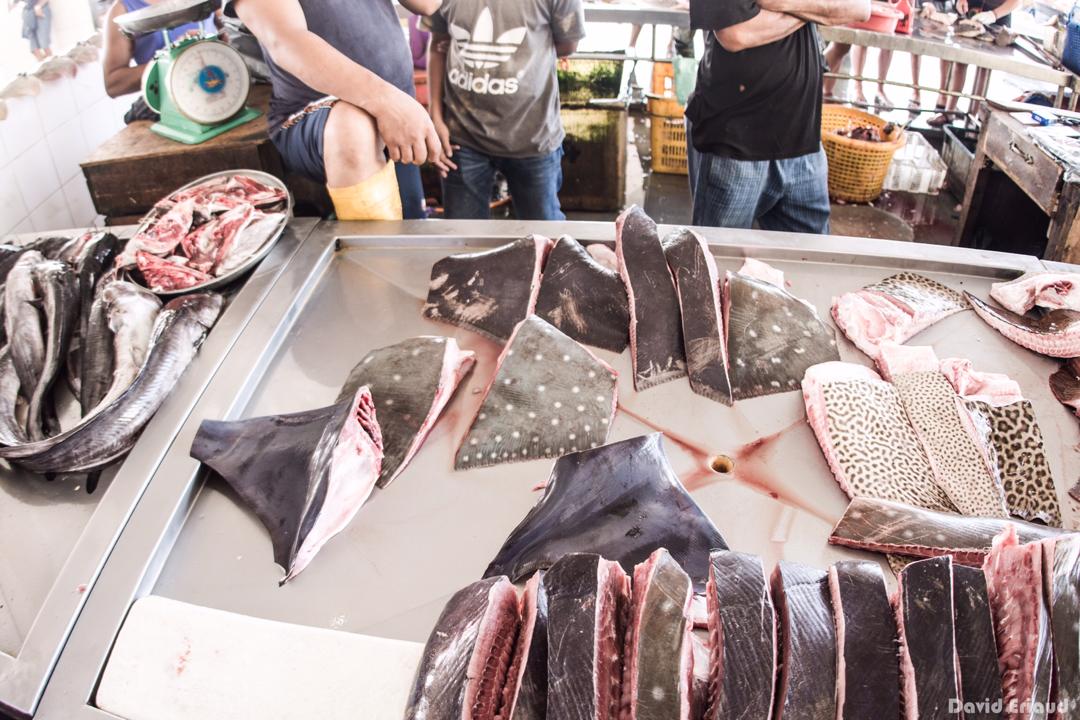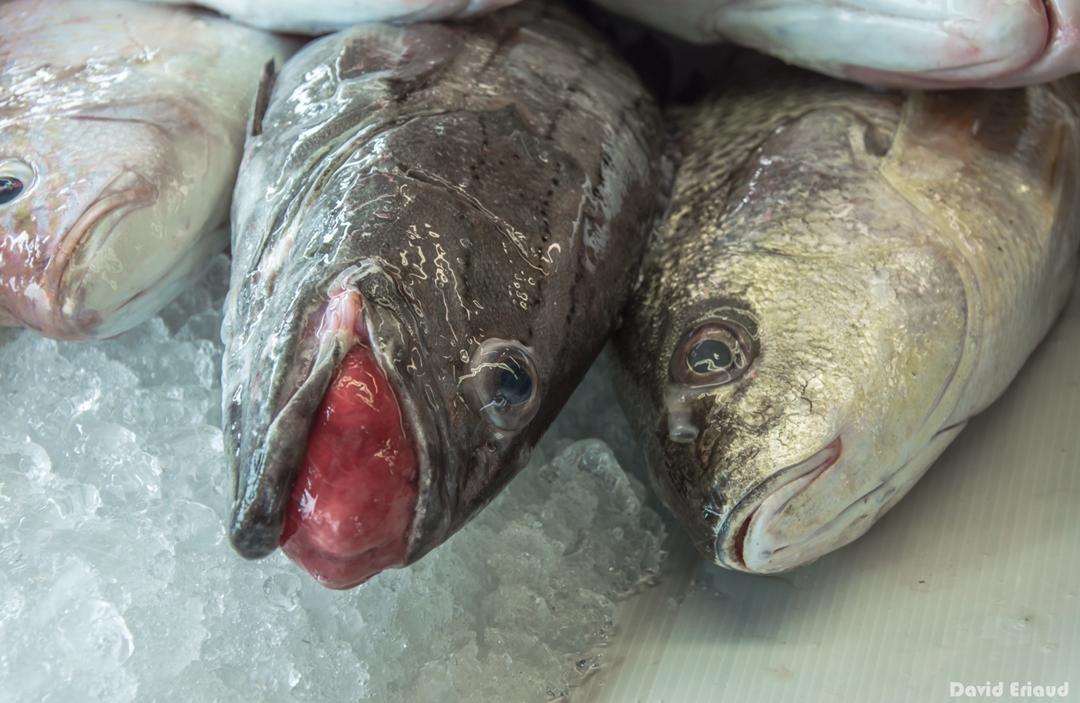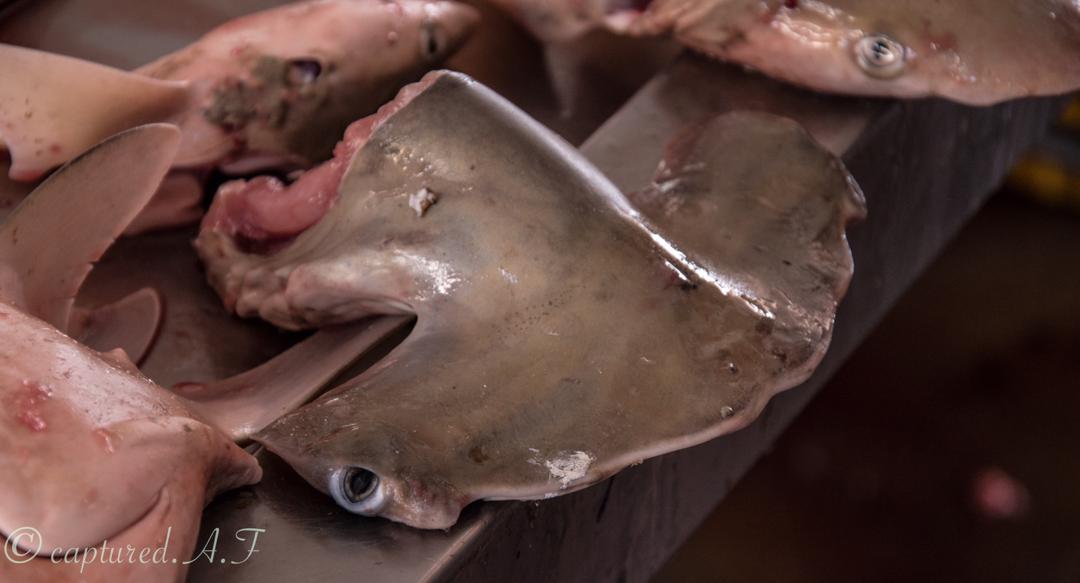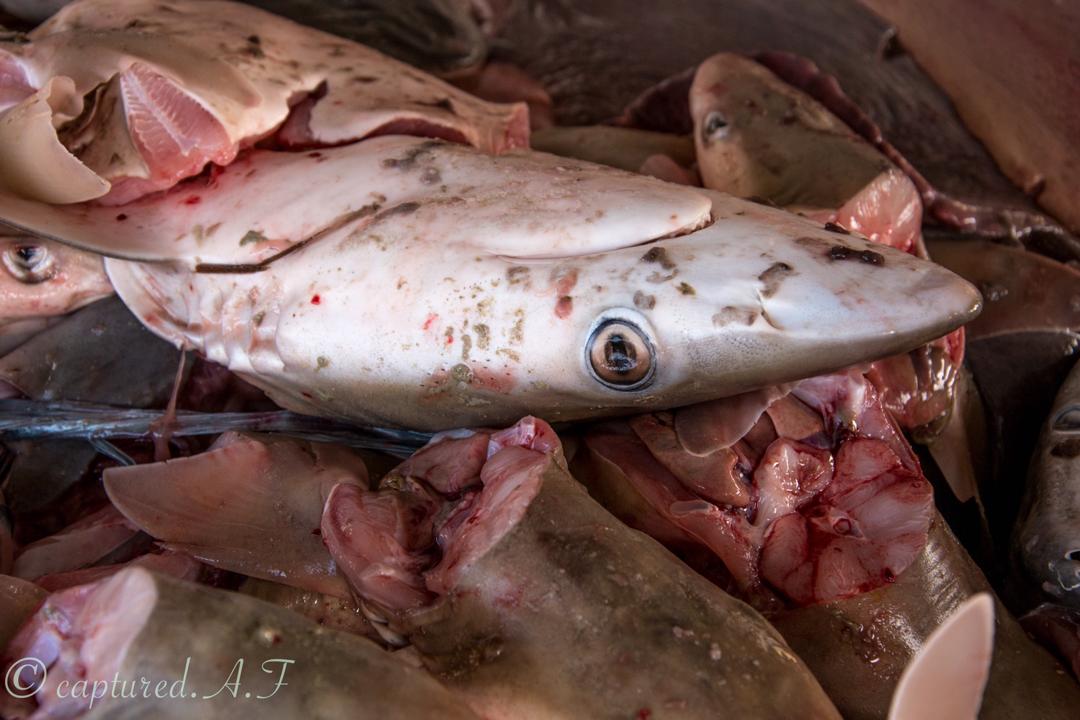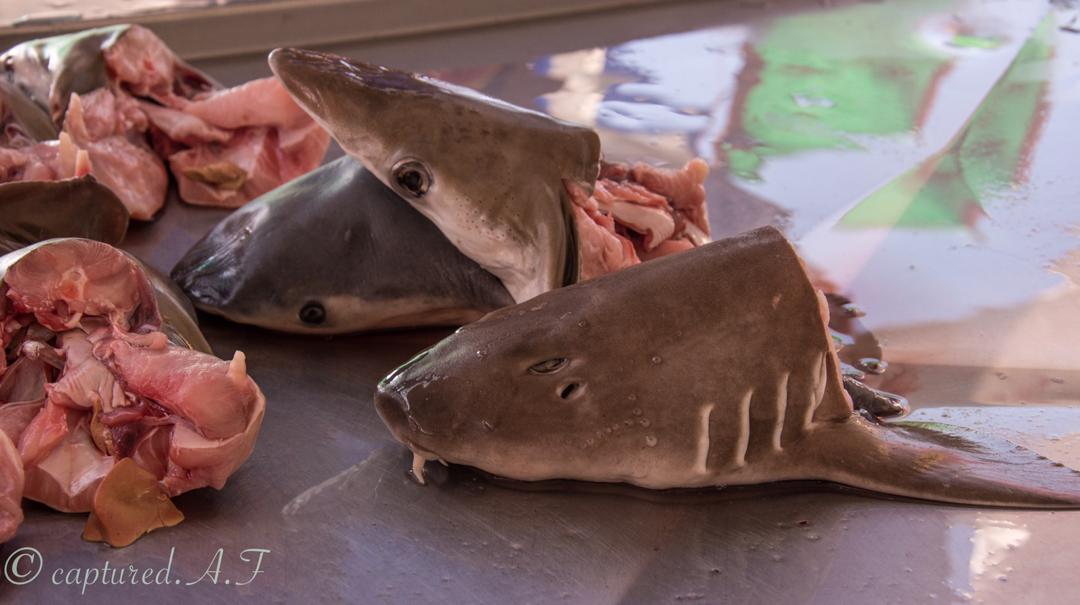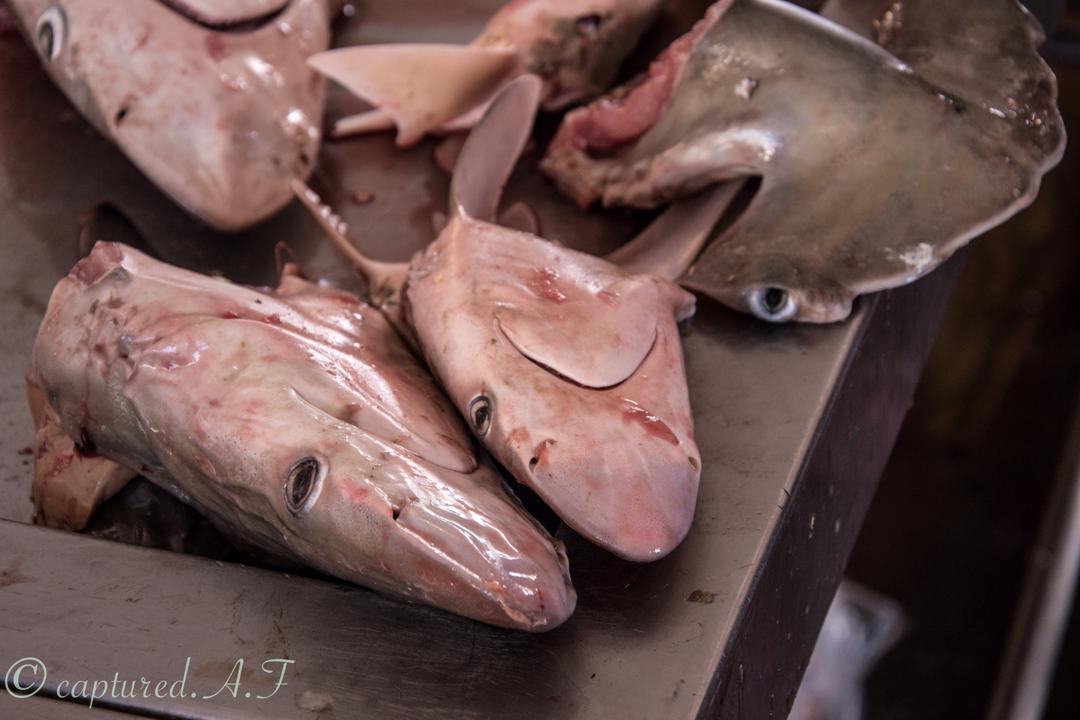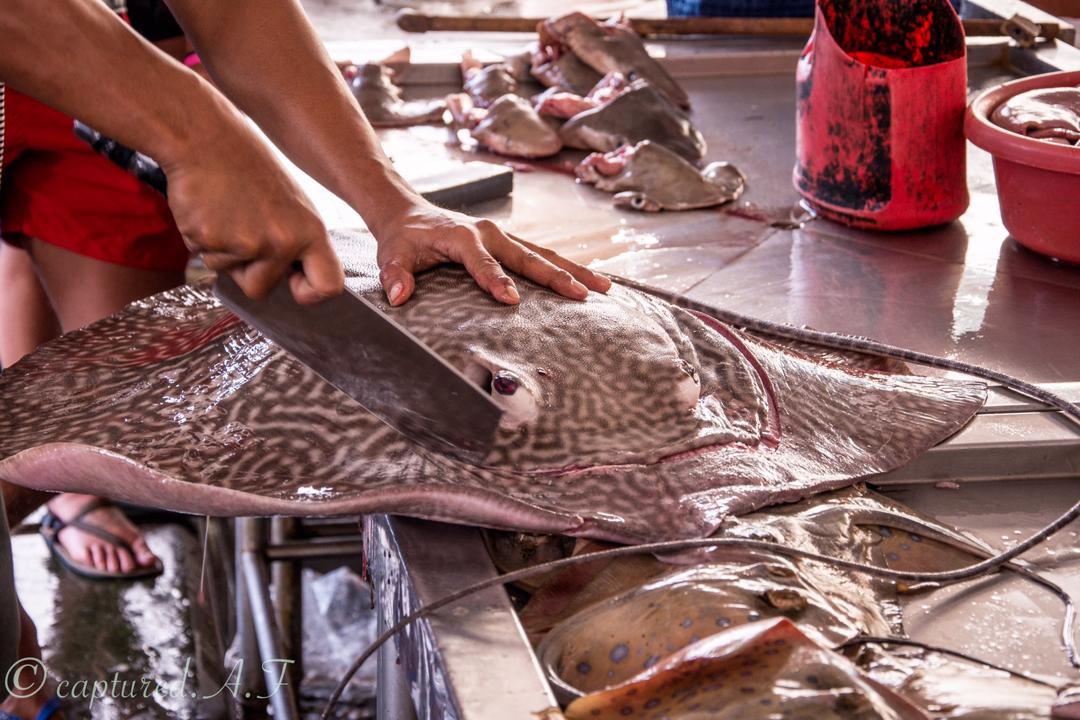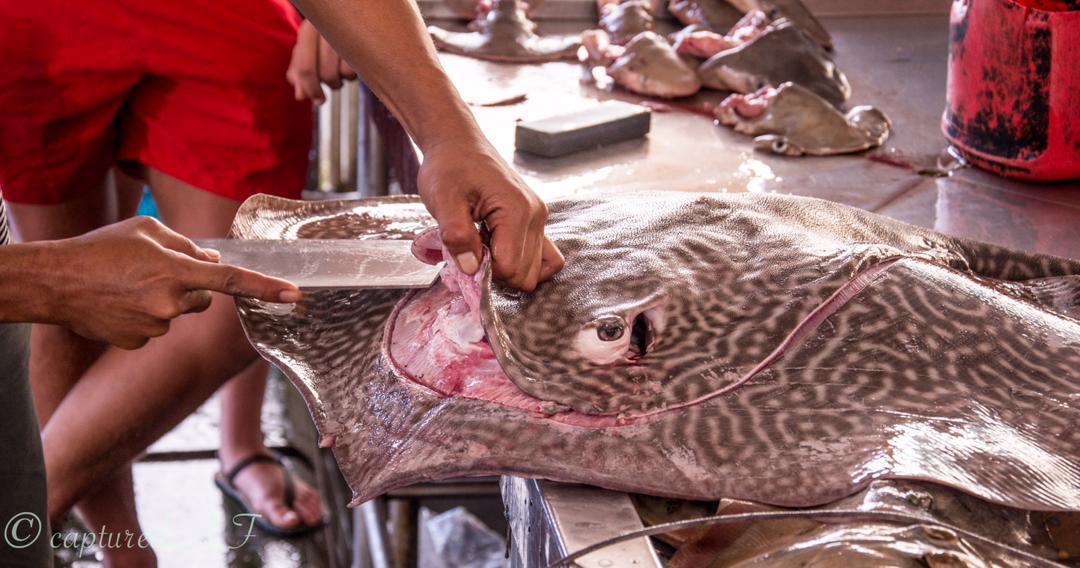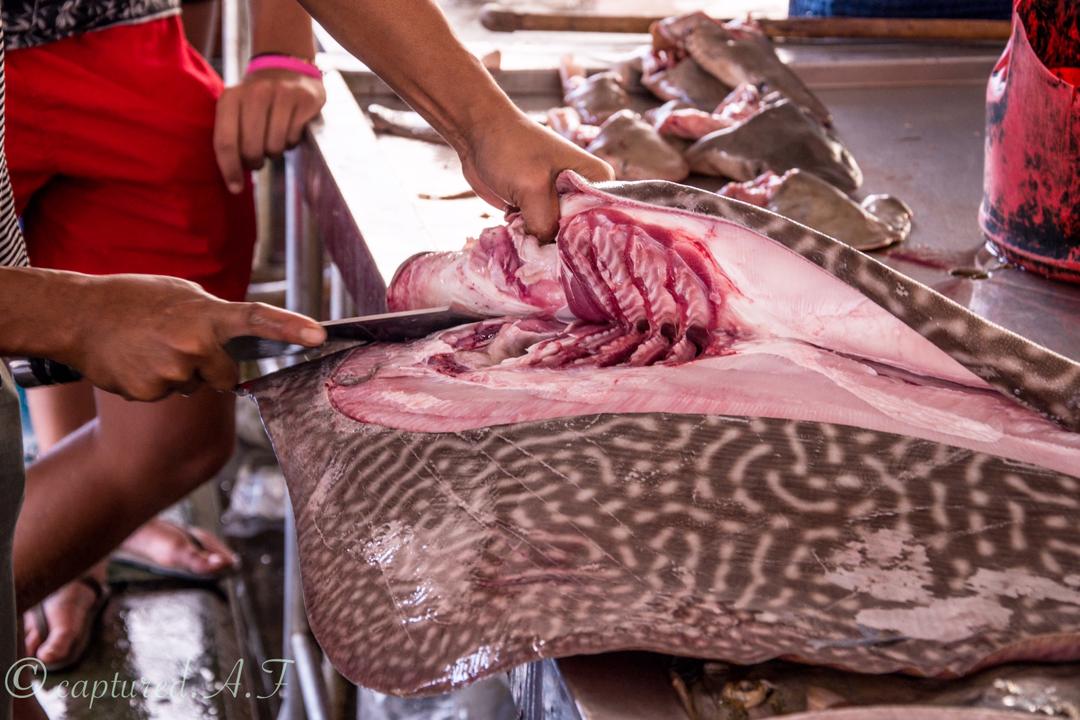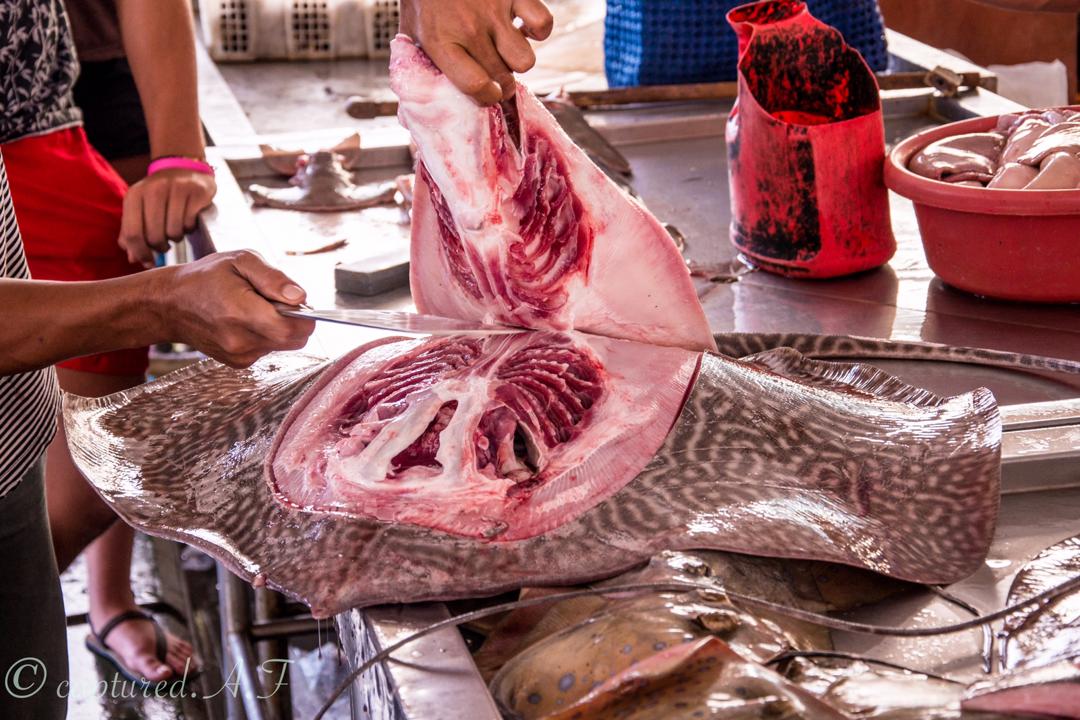FISH MARKET EXCURSION THROUGH THE EYES OF A STUDENT.
Approximately 93.4 million tonnes of fish are caught annually, according to the 2014 estimation of the Food and Agriculture Organisation of the United Nations. This is a unsustainable number causing massive damage to populations and ecosystems. However, fish are a vital food source worldwide, and the fishing industry is a source of income for many. The clash of environmental impacts versus human necessity is something which I have morally battled with for a long time, but really facing these issues in the fish markets of Borneo drove things home in a way I had never expected.
Click on the image below for more.
The array of tables at the fish markets were like a morbid map of Borneo's waters. As marine animals are adapted to live in different places, behave differently, and consume different things, you could see where in the sea each animal must have come from. Different fishing methods are used to catch animals based mostly on these adaptations. The main fishing methods we identified benthic trawling and purse seine fishing, which were used to catch bottom-dwelling and open ocean species.
Benthic trawling is a horrendously destructive method of fishing, and can in no way be done sustainable. It involves dragging a net attached to a heavy object along the seabed, in order to catch commercially valuable animals on the seafloor. However, it destroys anything it encounters, reducing hugely important habitats like coral reefs to rubble. It also catches far more animals than those that are aimed for. So, when trying to catch something like shrimp, a devastating number of other animals are caught and severely damaged or killed, which are often deemed to be without commercial value and so are simply discarded. Some estimates suggest that up to 98% of trawling bycatch is discarded. Animals caught in this process can end up choking on the sediment of the seabed, something which I learned graphically from looking at smaller sharks at the fish markets. So many had mouths and gills full of mud and sand, and eyes with burst blood vessels.
Purse seine fishing involves using a vertical net with floats at the top and ropes at the bottom, which are used to close the net like a drawstring. It is used to catch species which live away from the seabed and coast, like mackarel. Purse seine fishing can be sustainable if smaller nets with large mesh are used, to catch fewer fish and allow smaller fish to escape. However, it looked as though unsustainable methods were widely used as there were no large fish of some species (large fish indicate that members of the population survive long enough to grow to full size).
It was also obvious that some fishing took place too close to coral reefs, as many reef-associated species could be found. Maybe the most jarring thing for me was that these species in particular have become very familiar to me through diving on Pom Pom, and to see them lifeless on tables felt pretty wrong. I'm used to seeing parrotfish swimming with their little side fins, boxfish floating by looking bemused, bluespotted ribbontail rays gliding elegantly through the water or skulking under rocks. It's strange how almost unrecognisable these familiar faces look once the life has gone.
The last fish market we saw was the midnight market in Kota Kinabalu. The lights turn on at midnight and the most hectic environment I've ever witnessed comes to life. This is a commercial fish market, in which buyers purchase vast quantities of seafood animals to be prepared and packaged, ready to be put on the first flights out of Kota Kinabalu (usually around 6am). With serious money on the line and little time, the atmosphere is electric as fishers throw around 35kg boxes of produce like they weigh nothing. People in yellow wellies were the buyers, who weighted and bought boxes by placing slips of paper on top. These were then stacked on trolleys, which weaved in and out of the sea of boxes to be loaded onto waiting trucks. On the sides were boxes full of less valuable bycatch, emphasising just how much is wasted by some fishing practises. The sheer scale of this single commercial operation really drove home just how much we are taking from the ocean to me. We saw hundreds of 35kg boxes in the short time we were there, which helped to make the impossibly large number of 93.4 million tonnes feel far more real.
These markets represented many of my first sightings of animals. I've never seen a shark in the wild before, but now I've seen hammerheads, blue sharks, guitar-head sharks, and even a big-eyed thresher shark. All dead. To call this heartbreaking would be an understatement.
With all of this being said, I cannot express enough how we have no right to pass judgement on the people at these markets. The fishers were so kind and accommodating to us, showing us their catch and answering our questions. Even when we were in their way, there was no gesturing or shouting. They were so keen to make a connection with us and find out where we were from. We must also remember that fish are an incredibly important resource for the global population, with hundreds of millions of people relying on them for income and as a primary food source. They are packed full of protein and nutrients, vital to some areas where these cannot be matched in other available foods. It is neither pragmatic nor moral to simply say that fishing must stop - fishing is a necessary practice, but the way it is being done now cannot continue if we want there to be fish in the sea in the future.
We need to improve fishing practises, with an emphasis on sustainability. We must end the devastating fishing practises, such as trawling, and replace them with sustainable methods. Time must be given to allow stocks to replenish. Governments need to put initiatives in place to provide opportunities for fishers who may be put out of work. However, doing this will cause deep and tremendous sorrow for a huge number of people, who have been fishing for generations. We cannot just ignore this - there is a huge amount of culture and depth of feeling to consider. These people cannot be left high and dry, or expect to drop this industry overnight. We cannot wade in and expect such dramatic changes to take place. But without any changes, fish and fishing opportunities will simply vanish for (not too distant) future generations.
Basically, the fishing industry has within it huge problems, but there is no easy answer to reverse the damage caused without impacting many human lives. I certainly can't think of a way forward to support both environmental and human interests. All I know for certain is that something needs to change.
Written by: Althea Piper
Images by: David Eriaud and Aneata Friend.
